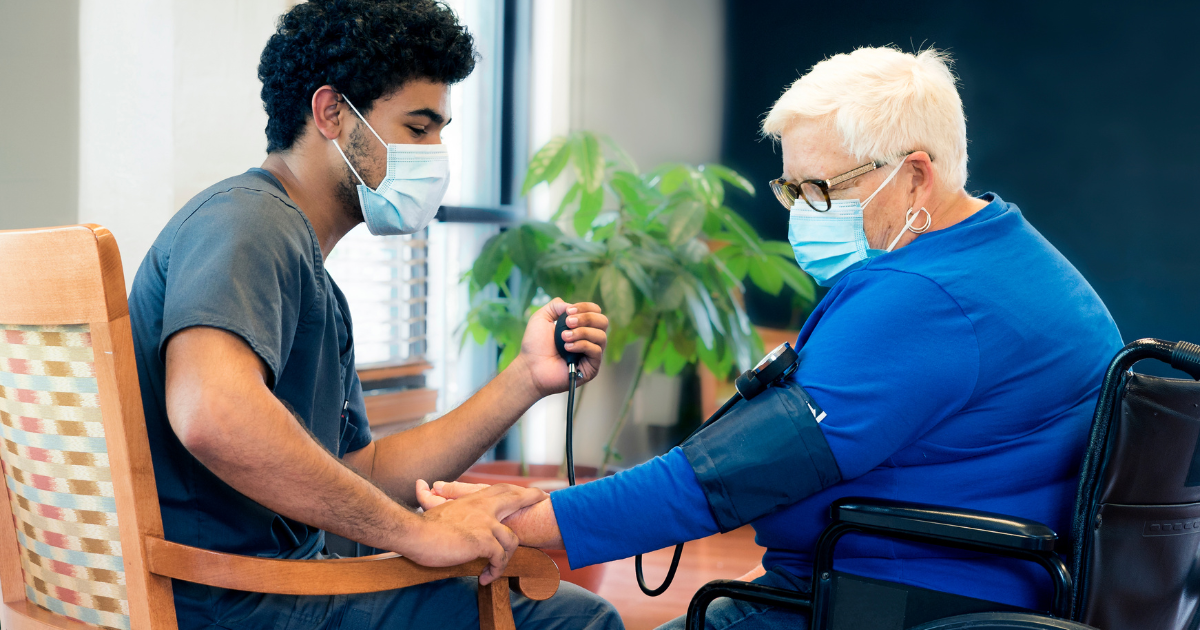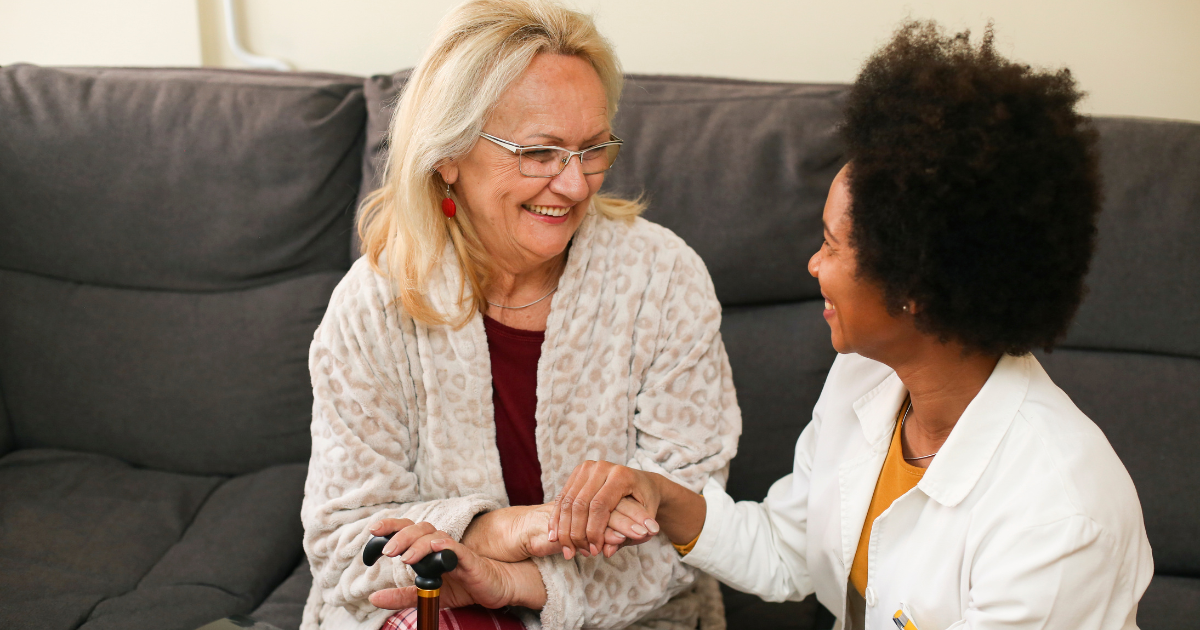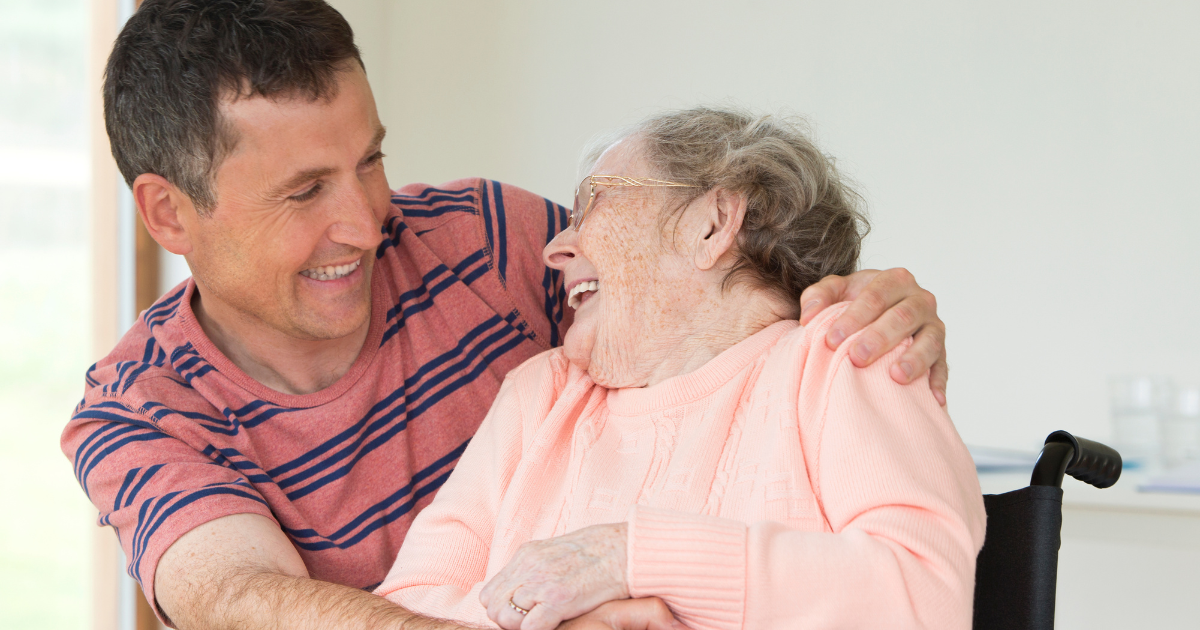In today’s fast-paced world listening has become a lost art. Good listening habits often lead to golden opportunities throughout life, whether it’s landing that dream job or enjoying healthier, more positive relationships with loved ones. As a healthcare professional, being a good listener benefits your career by making you a more effective caregiver. Here are several reasons why good listening skills might just be a caregiver’s greatest gift.
Examples of Poor Listening Habits
The average person only retains roughly one-fourth of what they hear every day. Not only do most people only hear a fraction of what others are saying, they quickly forget most of the things they do hear.
These are specific examples of poor listening habits:
- Inattentiveness
- Faking attention (“pseudo listening”)
- Rehearsing what you are going to say
- Interrupting the person who’s speaking
- Hearing what you want to hear instead of what is being said
- Avoiding difficult or uninteresting material
- Being defensive or taking the offensive
When caregivers don’t listen as they should it diminishes the quality of care that they are providing. Not listening carefully to your boss’ instructions may come back to haunt you on your next performance evaluation.
How to Be a Better Listener
It doesn’t take a certain degree or background to hone your listening skills. Being the caregiver that you were truly meant to be is possible by taking these good listening steps:
Make time to listen
If you’re like most caregivers, you’ve got a full plate. In addition to your job, you may be raising a family or working towards a degree. When life gets hectic the tendency is to not listen to your clients like you should, especially in situations when it affects their health and wellbeing.
During your interactions and conversations, stop what you’re working on- like folding laundry or washing dishes- and make time to listen. Conversing with your client in a distraction-free environment while giving them your undivided attention goes a long way toward improving the quality of care.
But don’t just listen with your ears. Visual cues are also important, notably when you are communicating with someone who is experiencing cognitive decline or struggles to find the right words. Maintain eye contact throughout the conversation and focus on body language. Crossed arms may be perceived as stubborn or defensive, while hands-on-hips could come across as being aggressive or confrontational.
Be an active listener
A one-sided conversation is rarely productive. In addition to showing them that you care, being an active listener will help clarify what your client is telling you. Keeping the lines of communication open in the relationship will help you earn your client’s trust and build your confidence for difficult situations that may present later, for example, recovery care.
Practice patience
Perhaps your client is trying to tell you something that you already know, or they are sharing a story that you’ve heard a thousand times. While these interactions may be easy to dismiss, use each conversation as an opportunity to deepen your bond.
If you’re truly strapped for time or stuck in the middle of a task that needs completing, fight the urge to give your client a rushed answer. Instead, politely table the conversation for later. But don’t forget to circle back to the topic again when you have enough time to devote to it. Whether it’s in a client’s home or at a staff meeting, the most effective caregivers are adept at both hard and soft skills.
In closing, remember that the time for listening is always right and that each day offers new opportunities to become a good listener- skills that ultimately make you a better caregiver in the end!
Home Care Career Opportunities in Indianapolis
At Senior1Care, we realize that great caregivers are not defined by degrees, but rather by character. Our mission is to improve people’s lives, something that we excel at every day. If it’s time to step out and discover your true calling, new opportunities await at Senior1Care. We serve Fishers, Carmel, Zionsville, Noblesville, and the greater Indianapolis area. While proudly serving communities in Indianapolis, we support clients with services including care for dementia and Alzheimer’s, hospice support, respite care, and private duty personal care.
Due to our expanding client load, Indianapolis, office is currently seeking qualified candidates to fill several caregiving positions. Whether you’re an aide, nurse, therapist, or another type of healthcare professional, we’d love to hear from you! To learn more about career opportunities with Senior1Care of Indianapolis, visit us today at www.senior1care.com.






